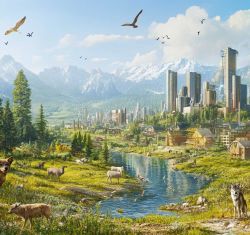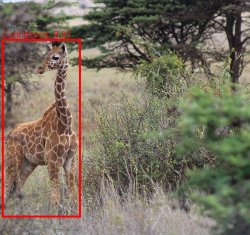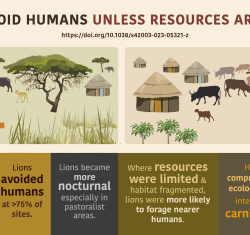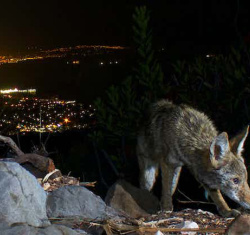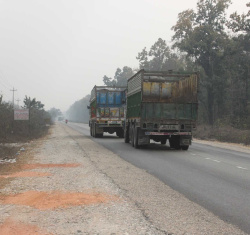
 back to all faculty
back to all faculty
Neil Carter

About
Dr. Neil Carter’s interdisciplinary research examines the complex dynamics that characterize interactions between wildlife and people (e.g., provision of ecosystem services, conflicts) in a global change context. His work addresses local to global wildlife conservation issues, utilizes a multitude of spatial techniques and tools, engages different stakeholders, and informs policymaking. General research interests include: spatial ecology, landscape ecology, wildlife management and policy, wildlife ecology and conservation, human dimensions of wildlife management, complexity of coupled human and natural systems, and sustainability science. Projects use field monitoring, social surveys, remote sensing, GIS, and spatial and simulation modeling to investigate human-wildlife coexistence in a number of contexts, such as the American West, Midwest, Nepal, and Mozambique. Prior to SEAS, Dr. Carter was an Assistant Professor in the Human-Environment Systems research group at Boise State University. He was a postdoctoral fellow at the National Socio-Environmental Synthesis Center and Princeton University.
Publications
Abrahms, B., Carter, N.H., Clark-Wolf, T.J. et al. 2023. Climate change as a global amplifier of human–wildlife conflict (https://doi.org/10.1038/s41558-023-01608-5). Nature Climate Change 13: 224-234
Carter, N.H. and Linnell, J.D., 2023. Building a resilient coexistence with wildlife in a more crowded world (https://doi.org/10.1093/pnasnexus/pgad030). PNAS Nexus 2, pgad030
Carter, N.H., Killion, A., Easter, T., Brandt, J., and Ford, A. 2020. Road development in Asia: range-wide risks to tigers (https://advances.sciencemag.org/content/6/18/eaaz9619). Science Advances 6, eaaz9619
Gaynor, K.M., Hojnowski, C.E., Carter, N.H., and J.S. Brashares. 2018. The influence of human disturbance on wildlife nocturnality (http://science.sciencemag.org/content/360/6394/1232.full). Science 360: 1232-1235
O’Bryan, C., Beyer, H.L., Braczkowski, A.R., Carter, N.H., Watson, J.E.M., and E. McDonald-Madden. 2018. The contribution of predators and scavengers to human health and well-being ((https://www.nature.com/articles/s41559-017-0421-2). Nature Ecology and Evolution 2: 229–236
Carter, N.H. and J.D.C. Linnell. 2016. Co-adaptation is key to coexisting with large carnivores (http://dx.doi.org/10.1016/j.tree.2016.05.006). Trends in Ecology and Evolution 31: 575-578
Carter, N.H., B. Shrestha, J. Karki, N. Pradhan, and J. Liu. 2012. Coexistence between wildlife and humans at fine spatial scales (https://www.pnas.org/doi/abs/10.1073/pnas.1210490109). Proceedings of the National Academy of Sciences 109: 15360-15365.
- Endangered Species Conservation in Shared Landscapes
- Understanding Human-Wildlife Coexistence
- Spatial Ecology for Conservation Decision Making
- Interdisciplinary Approaches to Reducing illicit Wildlife Trade
PhD, Department of Fisheries and Wildlife, Michigan State University (Fisheries and Wildlife)
MS, School of Natural Resources and Environment, University of Michigan (Terrestrial Ecology)
BS, University of California San Diego (Ecology, Evolution, and Behavior)




